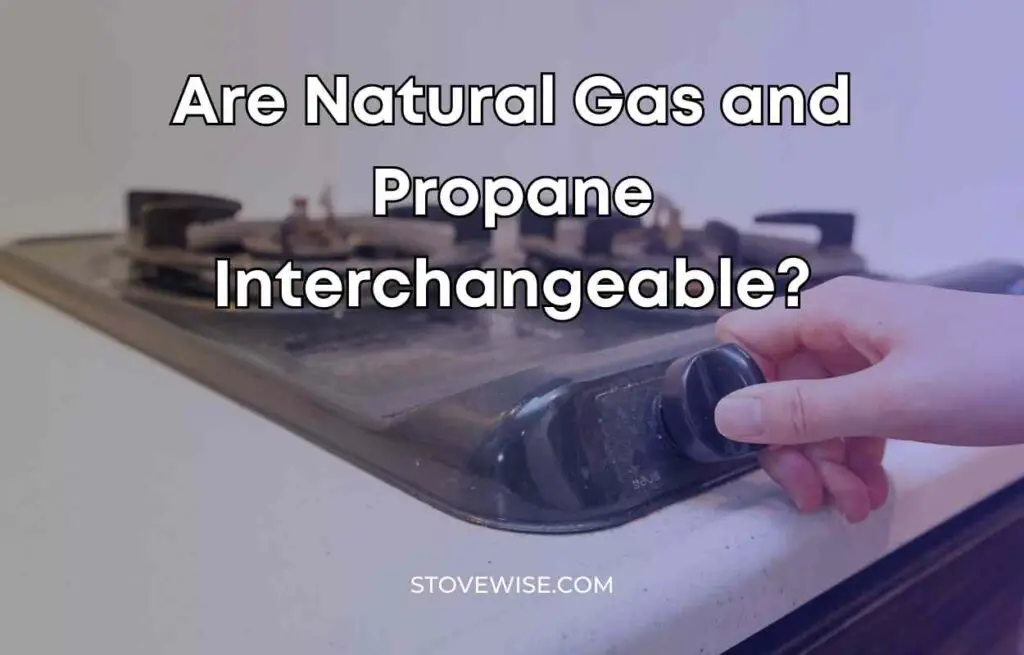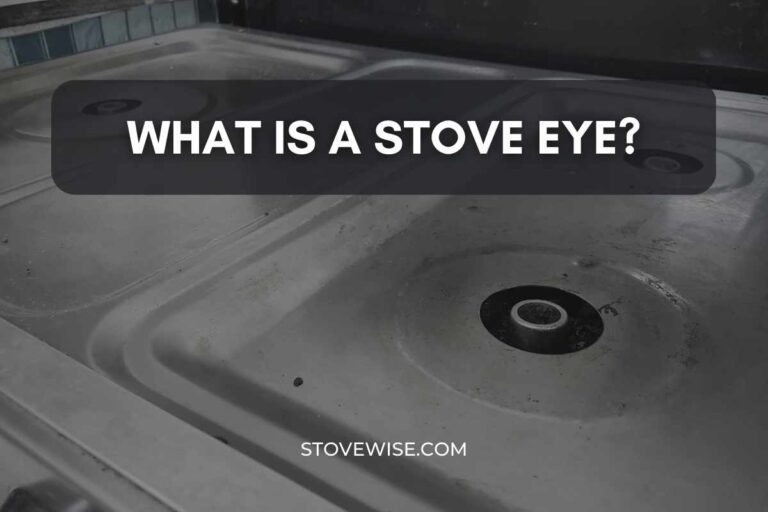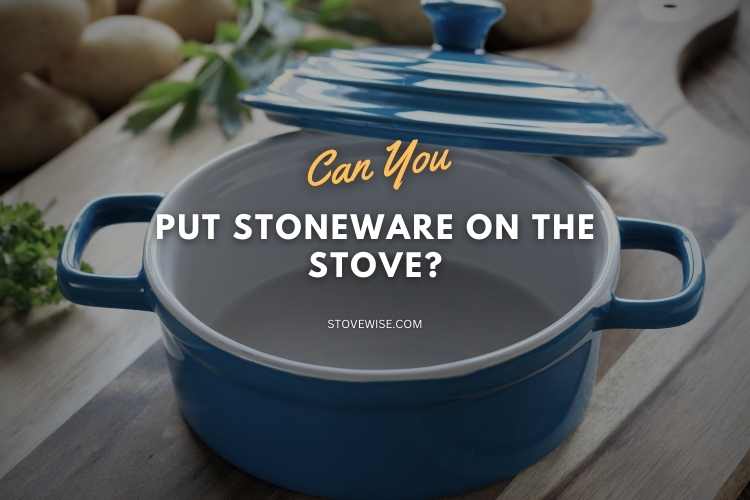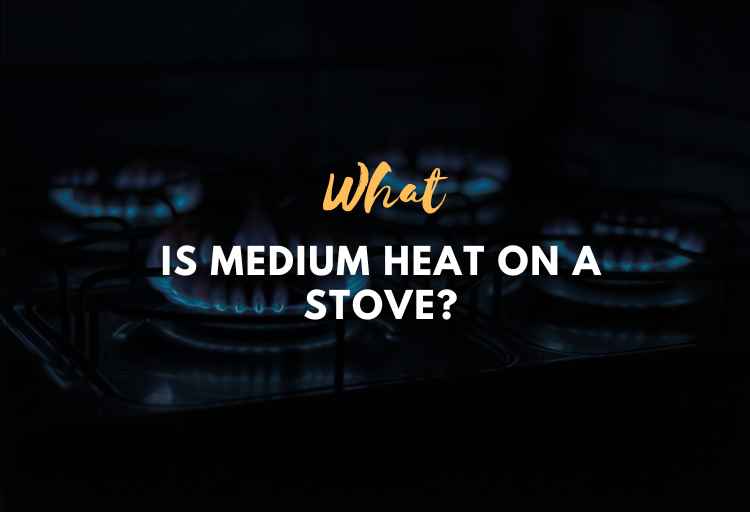Are Natural Gas and Propane Interchangeable?
When it comes to heating your home or cooking with gas, you may have heard the terms natural gas and propane used interchangeably. However, these two types of gas are not interchangeable.
Are Natural Gas and Propane Interchangeable? Natural gas and propane are not interchangeable. They have different properties and burn rates, requiring specific adjustments in appliances for safe and efficient use. Converting between the two fuels should be done by a qualified technician.

Contents
- Are Natural Gas and Propane Interchangeable?
- What Happens If You Use Propane on a Natural Gas Stove?
- Can a Natural Gas Stove Be Converted to a Propane Stove?
- How Much Does It Cost to Convert a Natural Gas Stove to Propane?
- How To Know If Your Stove Is Propane or Natural Gas?
- Reasons to Convert a Natural Gas Stove to Propane
- Conclusion
Are Natural Gas and Propane Interchangeable?
Because of their differing compositions, characteristics, and energy content, natural gas, and propane cannot be interchanged. A conversion kit, on the other hand, can be used to convert appliances from one fuel source to another. When using either fuel, safety should always come first.
They each have unique traits and characteristics that make them incompatible for usage in the same appliances unless they are modified. Because natural gas is less dense than propane, wider orifices are required, and propane burns at a greater temperature.
Using propane in a natural gas device, or vice versa, can result in safety issues, poor combustion, and appliance failures. Professionals should do the conversion between the two fuels to ensure proper adjustments and safe operation.
What Happens If You Use Propane on a Natural Gas Stove?
Using propane on a natural gas stove can lead to dangerous consequences. Propane burns at a higher pressure and temperature than natural gas, causing an unadjusted natural gas stove to produce larger and potentially uncontrollable flames.
This can result in appliance malfunctions, soot buildup, increased risk of leaks, incomplete gas combustion leading to carbon monoxide poisoning, and even potential explosions.
It is crucial to properly convert the stove or use the correct fuel to ensure safe and efficient operation.
Can a Natural Gas Stove Be Converted to a Propane Stove?
A natural gas stove can typically be converted to a propane stove with the proper conversion process. This usually involves changing the orifices and adjusting the burner settings to accommodate the different fuel properties.
It is important to consult the manufacturer’s instructions or a qualified technician to ensure a safe and successful conversion. Using conversion kits and professional assistance can help ensure that the stove operates correctly and efficiently with propane.
How Much Does It Cost to Convert a Natural Gas Stove to Propane?
The cost of converting a natural gas stove to a propane stove varies depending on a number of factors. It might cost as little as $15 for a conversion kit or as much as $300 for all of the essential components.
In addition, engaging a professional to make the conversion can cost between $150 and $300. The final cost will be determined by the intricacy of the conversion, the individual stove model, and the technician’s labor charges.
To ensure a safe and proper conversion, it is advised that you acquire bids from professionals and purchase conversion kits from licensed dealers.
How To Know If Your Stove Is Propane or Natural Gas?
To determine if your stove is designed for propane or natural gas, you can check the instruction manual or look for a manufacturer’s label on the appliance.
The label will indicate the type of gas the stove is intended to use. It is crucial to use the correct fuel type, as using the wrong gas can result in safety hazards and appliance malfunctions.
If unsure, consult a professional or contact the manufacturer for clarification to ensure proper usage and avoid any potential risks.
Reasons to Convert a Natural Gas Stove to Propane
When considering a conversion from a natural gas stove to propane, it is important to evaluate these factors based on your specific needs, cost considerations, and local availability.
Energy Efficiency
Propane offers higher heating efficiency compared to natural gas. It delivers more than twice the energy in British Thermal Units (BTUs), meaning you can generate the same heat with less fuel. While propane may have a slightly higher cost per unit, its efficiency results in overall cost savings.
Environmental Benefits
Propane is considered a “green fuel” as it produces fewer greenhouse gas emissions compared to natural gas, which is primarily composed of methane. Propane combustion has less impact on air quality and contributes to a cleaner and healthier environment.
Fuel Flexibility
Propane provides greater flexibility in fuel storage and delivery. Unlike natural gas, which is supplied through underground pipelines, propane is stored in tanks on your property. This allows you to control the fuel supply, compare prices, and switch providers if necessary.
Availability
In certain areas, natural gas may not be readily available, or the infrastructure for its distribution may be limited. Converting to propane enables homeowners to access a reliable energy source regardless of their location, making it a viable option for rural areas or regions without natural gas access.
Cooking Performance
Propane burns at a higher temperature than natural gas, which can result in improved cooking performance. It allows for faster heat-up times and more precise control over the flame, making it preferred by some professional chefs and cooking enthusiasts.
Backup Power
Propane can be utilized for backup power generation during electrical outages. With a propane-powered stove, you can still cook meals and operate other essential appliances when the power grid is down, providing convenience and peace of mind.
Conclusion
To summarize, natural gas and propane are not interchangeable due to differences in composition, characteristics, and applications. While converting appliances from one fuel source to another is doable, it is critical to do so properly and in accordance with the manufacturer’s instructions and guarantee.
When using natural gas or propane, safety should always take first. You may enjoy the benefits of natural gas or propane while keeping your house and family safe if you follow these rules.






